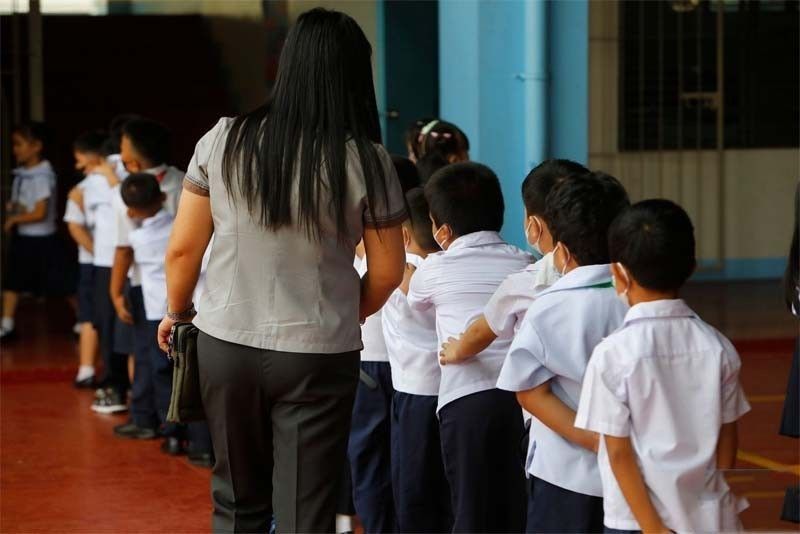The implications of law ending mother tongue education

On Tuesday, July 23, 2024, Senate Bill No. 2457 became the first bill to pass the third and final reading in the Third Regular Session of the 19th Congress. Sponsored by Sen. Win Gatchalian, the bill proposes to “discontinue the use of the mother tongue as a medium of instruction from kindergarten to the first three years of elementary education.”
As the bicameral body moves toward finalizing the proposed law for signing by Malacañang, it is imperative that we voice our concerns and critically examine the potential repercussions of this legislation. The bill seeks to restrict the use of the mother tongue (L1) as a medium of instruction from kindergarten to the first three years of elementary education, allowing only Filipino and English as media of instruction.
This led me to a conversation with two experts in Mother Tongue-Based Multilingual Education (MTB-MLE): Dr. Maria Mercedes Arzadon of the University of the Philippines College of Education and Dr. Heidi Macahilig of the Philippine Normal University.
According to them, this proposed shift warrants a closer look, as it affects constitutional rights, indigenous peoples' rights, and the integrity of our educational framework. The following paragraphs summarize my takeaways from my discussions with Dr. Arzadon and Dr. Macahilig.
The underlying question is whether there is concrete evidence to support the idea that limiting instruction to just Filipino and English will enhance learning outcomes for Filipino students.
Historical and contemporary research into multilingual education shows that students often benefit from being taught in their mother tongue, especially in the early stages of learning. Including a child’s native language can improve comprehension, retention and overall academic success.
This is particularly crucial for indigenous students and those from marginalized linguistic backgrounds, whose rights are enshrined in both our Constitution and the Indigenous Peoples Rights Act (RA 8371).
The 1987 Constitution explicitly protects the right to freedom of expression and acknowledges regional languages as auxiliary official languages, promoting their use as media of instruction.
Section 7 of the Constitution states that regional languages are to serve as auxiliary media of instruction in their respective regions. This legal framework underscores the importance of maintaining linguistic diversity and respecting local languages in educational contexts.
Similarly, the Indigenous Peoples Rights Act mandates that educational systems provide equal access to cultural opportunities, including education in indigenous languages. This law supports the right of indigenous communities to control their educational systems and preserve their cultural heritage. By proposing to ban the use of these languages in schools, the bill could infringe upon these fundamental rights.
Moreover, it is perplexing why this legislation is being pushed forward while the Second Congressional Commission on Education (EDCOM II) is still deliberating on the medium of instruction and curriculum issues.
The EDCOM II Year 1 report highlights that MTB-MLE is grounded in solid theoretical and research foundations. However, its implementation has faced challenges due to top-down, centralized approaches.
The current discussions aim to refine and improve MTB-MLE rather than dismantle it. Government efforts, such as those from EDCOM II and new legislation, must complement each other. They are meant to be pieces of the same larger puzzle, not separate ones.
There are also questions regarding the legislative process. Reports indicate that the initial version of the bill, advocated by Sen. Gatchalian, focused on redefining MTB-MLE for monolingual areas. It is crucial to determine whether this version was altered without adequate consultation with stakeholders, which could undermine the democratic process and the bill’s alignment with educational needs.
The proposed restriction on mother tongue usage could have far-reaching implications for our educational system and the rights of many Filipinos.
It is quite late at this stage to call for dialogue – why was this not raised by stakeholders or were they even involved?
When this bill reaches the president for signature, it might be prudent to consider these repercussions. Then, it might not be too late to go back to the drawing board.
Allen A Espinosa is a postdoctoral fellow at the Faculty of Education of Charles University in Prague, Czech Republic. He is currently on study leave as professor of Science Education at the Educational Policy Research and Development Office of the Philippine Normal University. As a scholar, his research interests cover a wide range of topics, including policy research in education, teacher education, information disorder, and social justice in education. Email address: [email protected]
- Latest




























